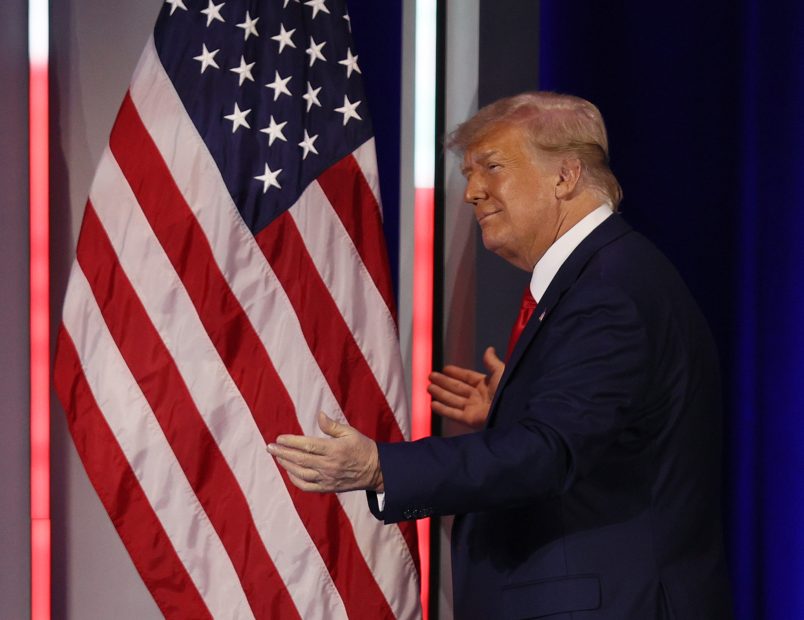More than a year after the deadly Capitol insurrection, former U.S. Court of Appeals Judge J. Michael Luttig opined on Wednesday that former President Trump and his allies’ bogus claims of widespread election fraud was just a “dry run” for the 2024 presidential election.
In an op-ed published on CNN, Luttig argues that few Americans understand why Trump and his GOP allies continue to push the Big Lie well after President Biden entered office last year.
Trumpworld isn’t actually hung up on the 2020 election being “stolen,” Luttig writes, the former president and his GOP allies are just now looking to grow the Big Lie seed they planted months ago as we head into the 2024 presidential election.
“That objective is not somehow to rescind the 2020 election, as they would have us believe. That’s constitutionally impossible,” Luttig writes. “Trump’s and the Republicans’ far more ambitious objective is to execute successfully in 2024 the very same plan they failed in executing in 2020 and to overturn the 2024 election if Trump or his anointed successor loses again in the next quadrennial contest.”
“The last presidential election was a dry run for the next,” Luttig continued.
Luttig points to Trump and GOP allies’ efforts before Election Day 2020 to exploit the Electors and Elections Clauses of the Constitution, the Electoral College, the Electoral Count Act of 1877, and the 12th Amendment as part of their various election stealing schemes that could be deployed if Trump were to lose both the popular and Electoral College vote.
Luttig notes the “cornerstone” of their efforts centered on having the Supreme Court embrace the little known “independent state legislature” doctrine — which dictates that state legislatures have exclusive authority over the conduct of federal presidential elections and selection of state presidential electors. Under the theory, this would prevent a state supreme court as well as other state elections officials from altering legislatively written election rules or interfering with the appointment of state electors.
Trump and his GOP allies started acting on the doctrine months before the 2020 election, Luttig writes, with their challenges to election rules relating to early- and late-voting, extensions of voting days and times, mail-in ballots, and other election law changes that Republicans weaponized for their unfounded claims of fraud in battleground states.
Luttig acknowledges the Supreme Court never decided to embrace the doctrine. However, in the Bush v. Gore ruling, then-Chief Justice William Rehnquist, and Justices Antonin Scalia and Clarence Thomas signaled they would support the doctrine in separate concurring opinions.
Republicans were further encouraged that there would be more support on the Supreme Court for the doctrine when Justice Amy Coney Barrett was confirmed on the high court right before the 2020 election.
But ultimately the Supreme Court was indecisive on carrying out the doctrine, with decisions against changing election rules promulgated by a state legislature.
In concluding the op-ed, Luttig argues that Trump and Republicans’ election steal scheme in 2024 can be ground to a halt only if the Supreme Court rejects the “independent state legislature” doctrine and Congress amends the ECA.
“Vice President Kamala Harris would preside over the Joint Session in 2024. Neither Democrats nor Republicans have any idea who will be presiding after that, however,” Luttig writes. “Thus, both parties have the incentive to clarify the vice president’s ceremonial role now.”



